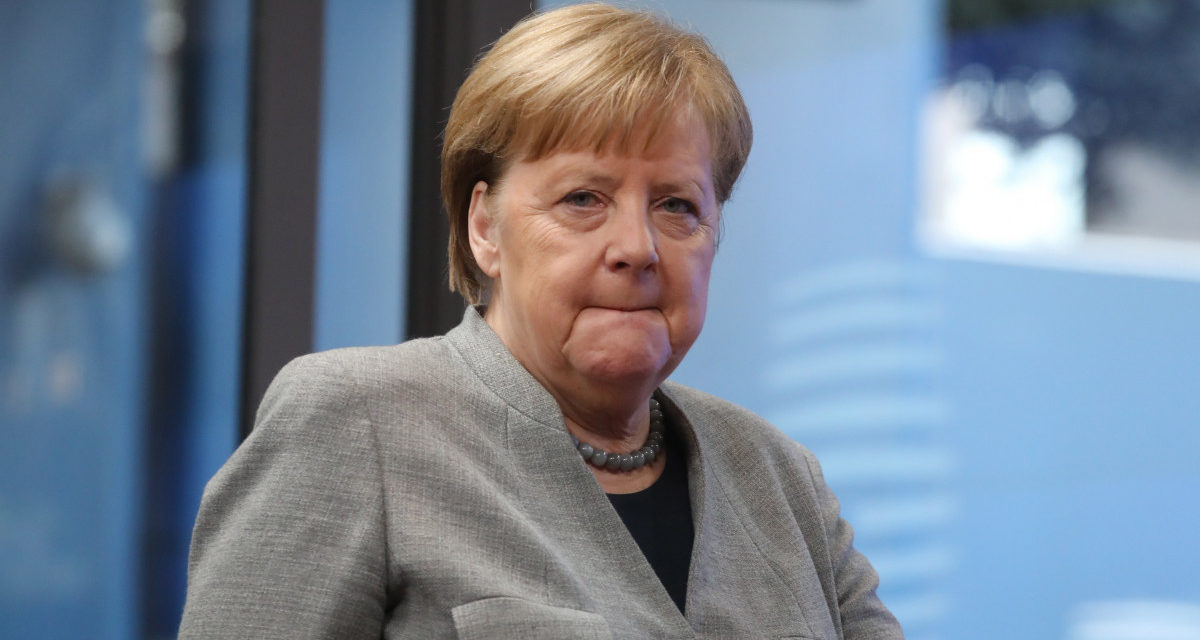I don't know if Viktor Orbán ever invited the members of the Constitutional Court to a pleasant social gathering at Karmelita, did he serve them dinner with the staff of Gundel? And if so, how would the dwindling opposition, along with its press, jump on him?
Especially if that particular invitation was connected to the date of an important constitutional court hearing concerning him, and he might try to influence the independent body with the dinner or the promises made there. To what extent would they be accused of corruption, violation of judicial independence, and what would the diverse opposition write in their series of whistleblower letters to Brussels? It is certain that they would cry for blood, at home they would say "resign, enough of the dictatorship". Brussels would be expected to initiate the next infringement procedure and finally ignite that seventh article!
This thought experiment came to light because, at the end of June, Angela Merkel hosted the German federal constitutional judges in her chancellor's office, mocked as a washing machine in Berlin. (Just in parentheses: there is a difference between a "washing machine" that is barely fifteen years old, but already in need of several million euros of renovation, and a monument monastery that has been miraculously restored from its ruins!)
There is nothing special in this, declared Dr. Harbarth, the president of the robed body, who was a party politician in the colors of the CDU for decades, and even a member of the Bundestag for ten years, until the day he was elected a judge. It is a tradition that the government and constitutional judges sometimes have dinner together.
All the judges appeared at the dinner, and none of them felt that it might be embarrassing, suspicious of corruption, that it could shake public confidence in judicial impartiality. Because the chancellor was summoned before the robed body. It was announced by the class enemy, the AfD, a legitimate parliamentary party also monitored by the secret service. The AfD saw that Angela Merkel exceeded her official authority and violated the democratic rules of the game, the neutrality expected of government officials.
Perhaps we, Hungarians, still remember the ominous sentence uttered a year and a half ago, with which Mrs. Merkel sent a message to her party colleagues from South Africa.
"The result of the Thuringian state election is unforgivable, it must be destroyed immediately, because no one can become prime minister in Germany with the votes of the AfD!"
he shouted, not realizing that he was demanding the annulment of the result of a democratic election.
The earth shook in Germany at that time because the chancellor ordered the annulment of the election results. Like a dictator. It also became clear right away that although he transferred the power of the party chairman to his incompetent successor with a long name, AKK for short, he is still the man who says things in the CDU. Kemmerich, the legitimate free democrat prime minister elected by the AfD votes, resigned within two days on the instructions of the boss woman, so that the candidate of the pro-communist successor party, the Linke, could fill the position without any problems. His election did not harm German democracy.
Merkel's party successor, Annagret Kramp-Karrenbauer, also resigned. We could say that he took the trouble, i.e. he took party responsibility for what happened. But we can also say that he had a hard time bearing what happened and did not want to take any further part in this mess. Because his resignation also meant his resignation from the post of chancellor in the future.
Apparently, world order has been restored, the Constitutional Court postponed the AfD's denunciation, referring to the pandemic. I guess they wanted to wait until the end of Merkel's last term in office, then the case wouldn't be such a big deal. People quickly forget, who remembers, for example, that the AfD has repeatedly cited Merkel to court for violating the law.
For example, in 2015, when he abused his official power and made a one-man decision and ignored the law, he facilitated the uncontrolled entry of hundreds of thousands of migrants into the country. The AfD then accused the chancellor of involvement in human trafficking. Since then, I haven't heard that a verdict has been reached, and I don't even know if proceedings have been initiated in the case at all.
Since the migration crisis, Merkel has received more than a thousand criminal complaints. Of course, this is the number published in the press, the official data is about only 407 reports, and after the prosecution found the reasons to be unfounded, it did not even start the investigation.
But let's stick to the Thuringian mess! After a very short time, only one and a half years, the Constitutional Court started hearing the case, because otherwise it takes five or six years (!) for a serious, thorough investigation.
When the AfD found out about the dinner (they were not invited), they immediately filed a complaint: the dinner casts suspicions of corruption on the appointed body. However, both councils were in Berlin and had dinner not only with Merkel, but with her entire cabinet, so the impartiality of the entire Constitutional Court became questionable.
The conflict of interest complaint filed against them was criticized and rejected by themselves, so the trial could finally take place on July 21. Merkel did not understand, her chief of staff represented her. It was necessary to clarify in what capacity he made the statement in Pretoria.
Because a politician can say to another politician or party that he is unprofessional, or even defame him in public. As a party politician, you can do it within a cultured framework at a party meeting or during the election campaign. But as an elected official, as a member of the government, he has an obligation of neutrality.
Merkel was there as prime minister, and gave a press conference accordingly. In addition, the statement was posted on the government portal. In any case, he could not speak as party leader, since he was no longer the president of the CDU at that time.
The chancellor was under pressure - they defend themselves - in the eyes of the world, the election of Kemmerich in this way would have meant the advance of the extreme right. And Germany cannot afford that. The lawyer also showed some horrific newspaper articles about the Thuringian elections. This defense stood on very shaky foundations.
Let the left break forward, it seems that in this democracy it is more permissible. It could also be a solution if they thought about how necessary it is to continuously stigmatize, discredit, and monitor the politicians of the largest opposition party in the Bundestag, the AfD.
The federal elections will be held in September, the forecasts measure the votes of the AfD at twelve percent, which is 7.2 million people out of sixty million voters, then the size of Hungary. They have ten representatives in the European Parliament, but I have not heard that they are concerned with denouncing Angela Merkel or her government. Let's face it, there's a reason.
Did Chancellor Merkel violate German laws? Three quarters of Frankfurter Allgemeine Zeitung readers said yes. The world did not collapse, the newspapers reported on the event one by one (it was impossible to remain silent), but they retreated to their snail houses, and after two days not a word was said about the whole thing. No verdict was reached, the trial was adjourned, and they will meet again on this matter at some point. By then, the situation will be different, and the verdict will only be about questions of principle.
Irén Rab, historian / magyarhirlap.hu /
Featured image: MTI/EPA/AFP/Ludovic Marin













